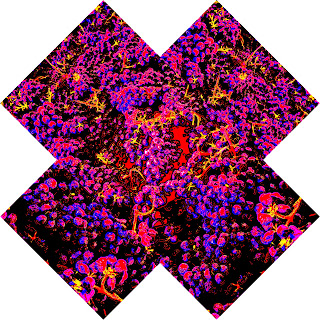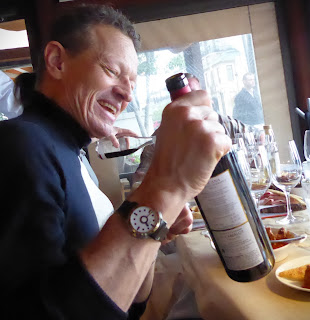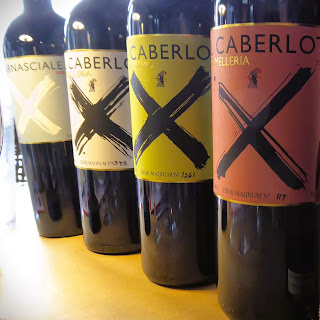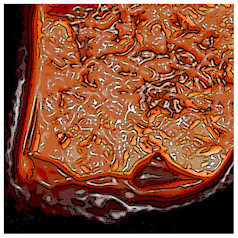We are in the month of March – which has been, traditionally, in the wine trade, a time when winemakers and winery owners jet off and taste their clients on their releases, new and sometimes old. Slow Wine, Gambero Rosso, James Suckling, even Vinitaly with its Road Show, are crisscrossing the planet and spreading the Gospel of Italian Wine.
So, it came to be, on a Friday at Noon, one week before Good Friday, that the proprietor of the fabled Tuscan estate, Il Carnasciale, landed in Dallas, between Slow Wine gigs in Austin and Denver for a quick twelve-hour sip and swirl with local chefs and sommeliers.
Mortiz Rogosky was that person, and he came with a noteworthy story. The property is in Localita San Leolino, Bucine, in the province of Arezzo in Tuscany. It falls within the DOC of Vald’Arno Di Sopra, and as the crow flies is about eight miles from Gaiole in the Chianti Classico zone. But it is definitely an outlier in the area.
Upon meeting Moritz, he immediately presented as most affable and warm. He knew who I was, which is always a bit of a shock. We got down to talking about wine post haste.
Let me deviate for just a moment.
There are all kinds of people who get into the wine business, in the world and in Italy. Italy holds a special charm for many people, for the land is romantic and enchanting. If one bought into the place before the prices skyrocketed, it was a bargain. But Italy expects something back from their “owners.” And that is to listen to the land, and in this case, the vines. On this property the vines were also outliers, or so it seems.
That is, the grape that the family (and now the world) calls Caberlot, is purported to be a marriage, over time, of Cabernet Franc and Merlot. A “coltura promiscua” of sorts. I know, this sounds like an early wet dream of Riccardo Cotarella, imagining his not-too-distant future from his single post bedroom in Umbria. But this is an independent project of Nature, with Vittorio Fiore and Remigio Bordini filling in for the Archangels, Rafael and Gabriel. The Rogosky’s, now mother Bettina and son Moritz, have hitched a small part of their fortune to elaborating the grape and making it into a singular wine. I would say, early on, they achieved their goal. The wine known as Caberlot, is highly prized ( and valued) by a growing coterie of collectors and cognoscenti. I am guilty of being one of their willing acolytes on this journey. The wines, before I even begin to describe them, are world-class outstanding.
Caberlot has been called a “cult” wine. When I hear that word, I tend to more think of Kool-Aid and Jim Jones, unfortunately. But the Latin and Greek word, cultus, focuses more on the process of cultivation. To inhabit, to tend, to care for. And in that way, I can perfectly imagine this wine to be made in the spirit of caring and salubriousness.
Sidebar: Mortiz told me something that I would also probably tell someone, if I were in his position. And that is that they have not genetically tested the grapes because they really don’t want to know at this point, don’t want to burst their bubble in case the grapes turn out to be different than what they had been told. I too would say that, on the record. But I sure as hell would want to know, just for curiosity’s sake. If they have, let it be their little secret. It doesn’t diminish the impact of the wine in my view.
This could really be a longer post, but I know our collective attention span doesn’t allow for an elaboration. So, let’s talk wines:
First to try was the 2019 Ottantadue – a 100% Sangiovese made in stainless steel, no oak. Fresh nose and fruit, nice spice, in fact quite spicy. The flavors opened up into a warm gushy feel. Really nice wine for pronto bevere. I imagine a wine like this is good for the winery, as they need something to drink often without raiding the Caberlot silo. It’s one of those wines that if it were all I could drink for the rest of my life as an everyday, I would be none the worse for it. Quite pleasant. Appx $30-40.
Second up was the 2020 Carnasciale. From the Caberlot vines and handled similarly to the Caberlot releases, but with a lighter touch with regards to ageing. I found the wine to be rich and velvety, quite lovely. The oak was present but not overbearing. It was well balanced and again, a really nice wine. Hovers in price between $70-90.
Finally, a trio of Caberlot vintages, the 2019, 2018 and 2017. Pre-Covid era wines, we now call them. Let’s dig in:
2019 Il Caberlot – I found a little closed in – deep colors and flavors – spicy – some oak – tannic, but supple (think Harry Waugh’s famous “tender tannins” appertaining to Latour). Long finish and highly perfumed. I kept going back to this wine, especially the aroma. They were wonderfully integrated. Just another lovely wine.
2018 Il Caberlot – deeper flavors, purple fruits. The thing about this wine that struck me was that while this might be seen as an “international” style of red wine, it definitely said “Italy” and even more so “Tuscany” to me. It had tannins galore, and the spice was well woven into the flavors, making the tannins seem not so stringent and unmovable. The fruit haloed all of this, of course. If I were younger, I’d put this in the wine closet for the future, for sure.
2017 Il Caberlot – this one had a fleshiness to it in the initial handshake. It was open and warm and slightly tannic - We are talking 2017 here -and that was a dry, droughty year, preceded by an early spring frost which determined many things, crop size among them. The wine was aromatic and lush, a great effort considering the challenges of 2017. A gorgeous, if lighter wine. I could cellar this one in my dotage, easily.
The winery produces 20,000 bottles of which 70% are 1.5 liter magnums. So, a lot of 750ml bottles don’t make it to America, and even fewer to Texas. And the Caberlot wines, in 750ml, retail in the mid-to-high $200+ per bottle. In restaurants, expect to part with $600-1000 for the experience of having somebody pour it for you in public.
That would make this wine either a special occasion wine or a wine for people for whom spending a thousand dollars is like spending ten bucks. And Dallas has no shortage of that caste. So, it really is a wine made for this glitzy urban refuge of 8+ million souls. Or, a fortunate fraction.
Antonio Galloni also loves this winery and their offerings. Galloni, who rolls with the patricians in the wine world, gives high marks (100 points for the 2018 Caberlot!) but he also gives praise to the Ottantadue, which pleases this plebe. Something for everyone. So many winners!
I’m a fan – I’m not ashamed to admit it. It’s a wine for the Royal Oak and Nautilus crowd, and sometimes I get invited to the table. I’ll concede from time to time. After all, it is a gift from Italy, and I am a son of Italy. So, I am grateful to her, and to Moritz, for dropping into our neighborhood and gracing us with his presence and his very wonderful wines. Or as we say in the Dallas-Ft. Worth metroplex (DFW), these are “DFW” (Delicious F***ing Wines!)
if you wish to comment, comment here:
https://www.facebook.com/alfonso.cevola/
https://www.instagram.com/alfonso.cevola/








